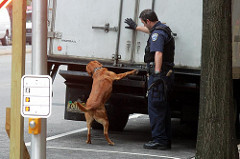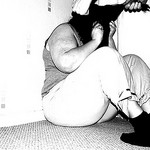Determining a Violation of One’s Speedy Trial Rights

Every criminal defense has the right to a speedy trial.
“The Sixth Amendment of the United States Constitution guarantees that ‘in all criminal prosecutions, the accused shall enjoy the right to a speedy and public trial.’” State v. Young, 321 P.3d 1127, 1133 (Utah 2013) quoting U.S. CONST. amend. IV. The right to a speedy trial arises after an arrest. See Doggett v. United States, 505 US 647, 653 (1992). When a defendant’s speedy trial rights have been violated, it “leads to the unsatisfactorily severe remedy of dismissal of the indictment.” Barker v Wingo, 407 U.S. 514, 522 (1972).
The United States Supreme Court has laid out a four factor “balancing test, in which the conduct of both the prosecution and the defendant are weighed.” Id. at 530. These factors come from the Barker case and they are, “length of the delay, the reason for the delay, the defendant’s assertion of his right, and prejudice to the defendant.” Id. These factors are related and must be considered together in a balancing process to determine if a defendant’s speedy trial rights were violated. See Young, 321 P.3d at 1133.
Length of Delay
“The Supreme Court suggested in Doggett v. United States that a delay approaching one year is presumptively prejudicial.” Id. at 1133-1134.
Reason for Delay
There are different reasons for delay of prosecution, some of which are neutral and others which are improper. See Young, 321 P.3d at 1134. Whenever the reasons are due to the government’s failure to prosecute, “the ultimate responsibility for such circumstances must rest with the government rather than with defendant.” In Doggett, an indictment was issued against the Defendant but the government failed to prosecute him for 8-12 years. The government contended that they could not find him and that was the reason for the delay. The US Supreme Court disagreed and stated that the defendant was living openly in Virginia and was not doing anything to avoid detection. If the government had actually pursued finding him, they would have. The court found the government’s pursuit of the Defendant negligible and weighed the reason for delay against the government.
Defendant’s Assertion of his Rights
As to the third Barker factor, Doggett also gives guidance. In that case, the government provided no evidence that Defendant avoided prosecution until he was arrested so the court held that “Doggett is not to be taxed for invoking his speedy trial right only after his arrest.” Id. at 654.
Prejudice to Defendant
The US Supreme Court found that “delay between formal accusation and trial threatens to produce more than one sort of harm, including oppressive pretrial incarceration, anxiety and concern of the accused, and the possibility that the accused’s defense will be impaired by dimming memories and loss of exculpatory evidence.” Doggett, 505 US at 654. Of those prejudices, “the most serious is the last, because the inability of a defendant adequately to prepare his case skews the fairness of the entire system.” Barker, 407 US at 532.
Unfortunately, showing prejudice in defending the charges is very difficult to prove. “Barker explicitly recognized that impairment of one’s defense is the most difficult form of speedy trial prejudice to prove because time’s erosion of exculpatory evidence testimony can rarely be shown.” Doggett, 505 US at 655. Thus, courts “generally have to recognize that excessive delay presumptively compromises the reliability of a trial in ways neither party can prove, or for that matter, identify.” Id. at 655-656. The US Supreme Court continued:
Although negligence is obviously to be weighed more lightly than a deliberate intent to harm the accused’s defense, it still falls on the wrong side of the divide between acceptable and unacceptable reasons for delaying a criminal prosecution once it has begun. And such is the nature of the prejudice presumed that the weight we assign to official negligence compounds over time as the presumption of evidentiary prejudice grows. Thus, our toleration of such negligence varies inversely with its protractedness, and its consequent threat to the fairness of the accused’s trial. Condoning prolonged and unjustifiable delays in prosecution would both penalize many defendants for the state’s fault and simply encourage the government to gamble with the interests of criminal suspects assigned a low prosecutorial priority.
Id. at 657 (Internal citation removed).
In Doggett, the Court found the government’s negligence of failing to diligently prosecute defendant prejudiced his defense, even though he could not allege specific prejudicial facts.
In sum, if an accused’s case has been pending for more than a year without the government working toward arresting the defendant or otherwise hailing him to court, he may be able to get the case dismissed for a speedy trial violation.













